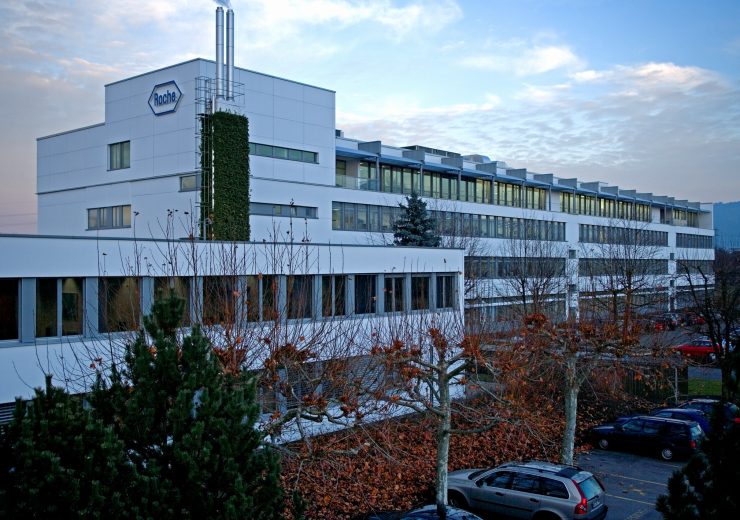The EC approval represents Tecentriq’s fourth indication in metastatic NSCLC and fifth indication in lung cancer overall in the EU

Roche gets EC nod for Tecentriq to treat people with metastatic NSCLC. (Credit: F. Hoffmann-La Roche Ltd)
Swiss healthcare firm Roche has received the European Commission approval for its Tecentriq (atezolizumab) as a first-line monotherapy treatment for people with a type of metastatic non-small cell lung cancer (NSCLC).
The drug is indicated for adults with metastatic NSCLC whose tumours have high PD-L1 expression without epidermal growth factor receptor (EGFR) or anaplastic lymphoma kinase (ALK) genomic tumour aberrations.
Tecentriq, which provides an alternative to chemotherapy for all eligible patients, is said to be the first and only single-agent cancer immunotherapy with three dosing options, allowing administration every two, three or four weeks.
The latest approval represents Tecentriq’s fourth indication in metastatic NSCLC and fifth indication in lung cancer overall in the EU.
Roche chief medical officer and global product development head Levi Garraway said: “We are delighted to bring Tecentriq to people in the EU with this specific type of lung cancer.
“Tecentriq monotherapy has been shown to improve overall survival in people with high PD-L1 expression, when compared to chemotherapy, and therefore represents a new treatment option for people living with this difficult-to-treat disease.”
The EC approval is based on data from the Phase III IMpower110 study, which revealed that Tecentriq monotherapy improved overall survival by 7.1 months compared with chemotherapy in people having high PD-L1 expression.
The trial enrolled 572 people, of whom 554 were in the intention-to-treat WT population, which excluded people with EGFR or ALK genomic tumour aberrations.
In November last year, Roche has secured the EC approval for Tecentriq plus Avastin (bevacizumab) to treat advanced hepatocellular carcinoma (HCC) in adults, who had not received prior systemic therapy.
